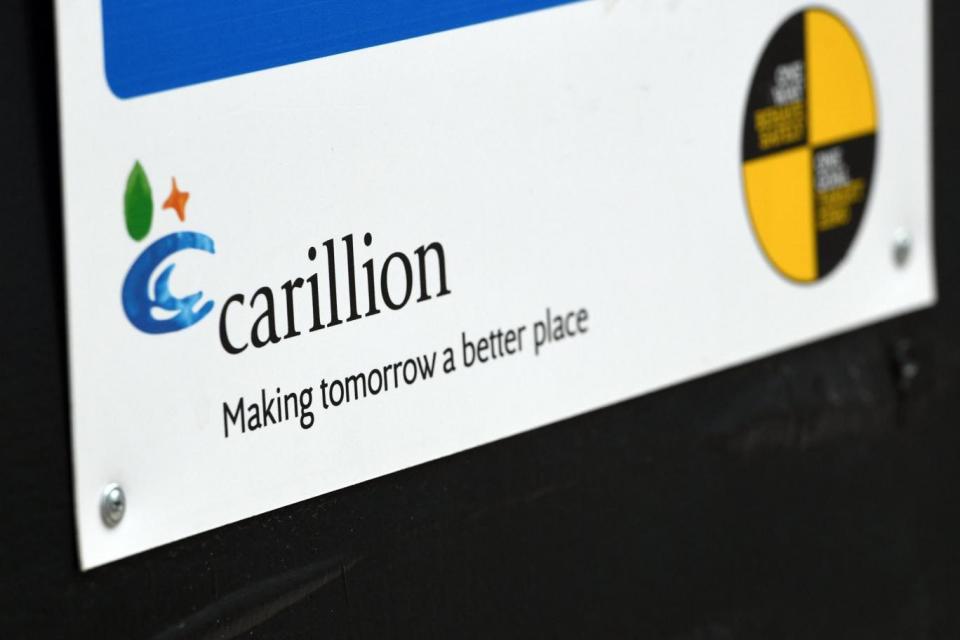Carillion liquidation: Business minister urges banks to protect small companies amid crisis

Business Secretary Greg Clark today urged banks to seek to avoid pulling the plug on small firms plunged into financial crisis by the collapse of construction giant Carillion.
The Cabinet minister issued the plea to lenders in an early morning meeting as the Government sought to stop Carillion’s demise from spiralling into a bigger economic crisis which could wipe out tens of thousands of jobs.
A 48-hour lifeline for Carillion private-sector contracts, during which the Government ensured workers were paid, was due to run out today.
Mr Clark also called on banks to ensure that decisions are referred to senior managers before funding streams are cut, which could force more companies to go bust.

However, in a sign of the febrile atmosphere gripping the corporate world, panic over Carillion’s collapse spread as outsourcer Interserve’s shares were hit.
Reports that the firm, which counts several government departments and the BBC among its clients, was under scrutiny from the Cabinet Office sent the shares down as much as 16 per cent at one point.
The sell-off forced the Cabinet Office to intervene.
A spokesman said: “We do not believe that any of our strategic suppliers are in a comparable position to Carillion.”

Shares in the firm, which has 80,000 staff, later clawed back most of the losses. Mr Clark today chaired a meeting with representatives of Barclays, HSBC, Lloyds Banking Group, RBS, Santander, Shawbrook, Aldermore and the British Business Bank.
Speaking afterwards, he said: “It is essential that small businesses exposed to the Carillion insolvency are given the support they need by their lenders.
“I chaired a meeting this morning of high street banks to ensure that they are in contact with customers impacted, that they have in place the advice and support needed and that any individual cases are escalated and dealt with sympathetically, swiftly and appropriately.”
Union chiefs today stepped up their calls for action to protect thousands of sub-contractors and other firms carrying out work for Carillion, many of which are owed significant sums by the construction giant which went under on Monday.
Len McCluskey, leader of Unite, said: “The taxpayers bailed out the banks. Now they need to repay that by offering a sympathetic ear to thousands of small firms and the workers that they employ who are the victims of the Carillion scandal.”
GMB boss Tim Roache called for firms with links to Carillion to be given more time to deal with the crisis and for a task force to be set up to oversee this rather than workers just being told “here’s the Job Centre Plus address”.
The Standard revealed yesterday that Carillion had just £29 million in cash by the time it went bust and that its creditors could end up getting less than a penny in the pound.
The revelation came in a High Court witness statement submitted by the interim chief executive, Keith Cochrane, on the company’s liquidation.
Brian Berry, chief executive of the Federation of Master Builders, warned there could be a “domino effect” among smaller sub-contractors from Carillion’s downfall.
“Those companies are relying on the money coming from Carillion, that has stopped,” he said.

 Yahoo News
Yahoo News 
